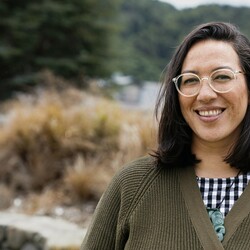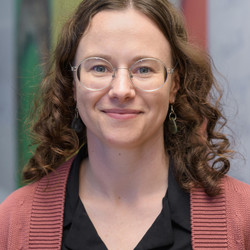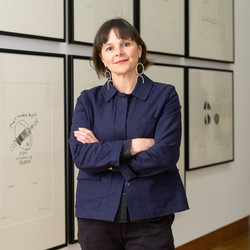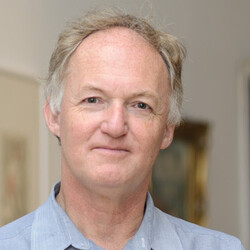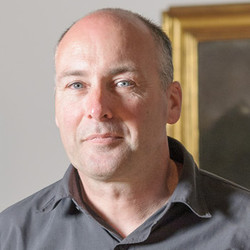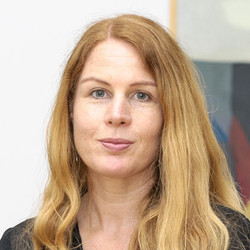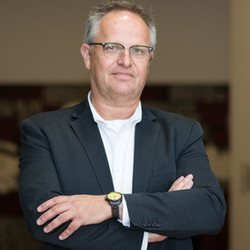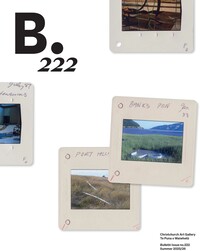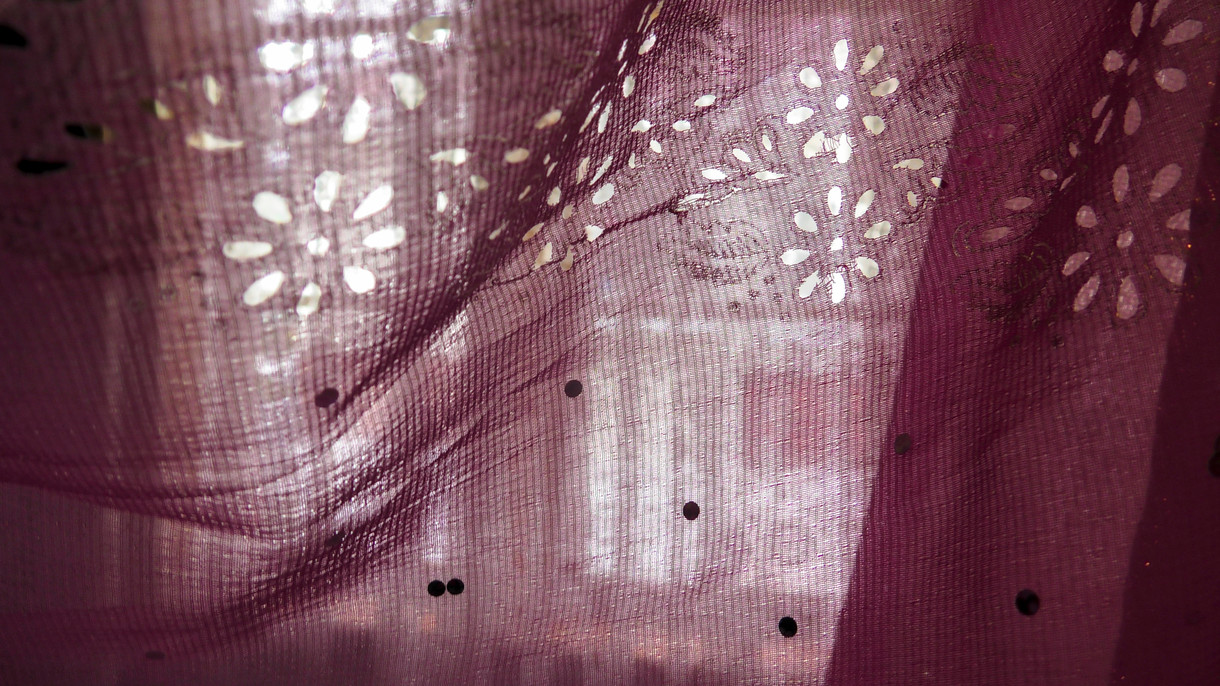Watch Your Tongue
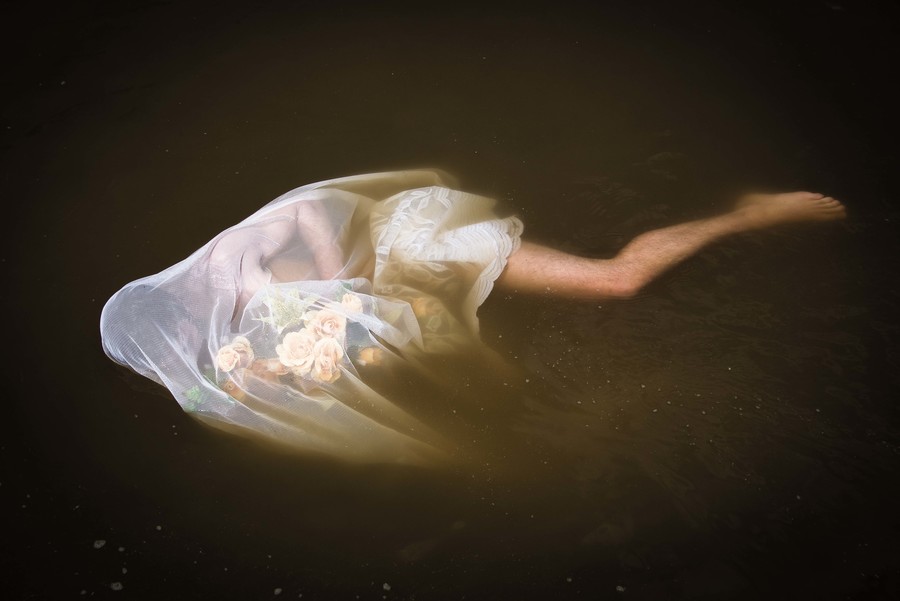
Tia Ranginui Something Safe/Te Kore 2022. Digital print on Hahnemühle photo rag paper. Courtesy of the artist and Laree Payne Gallery, Hamilton
I te tīmatanga ko te hiahia Mai i te hiahia ko te mahara
Mai i te mahara ko te whakaaro Ka puta ko te kupu e.
In the beginning was the desire From the desire came the remembrance
From the remembrance came the conscious thought From the conscious thought came the word.
Rangimotuhia Kātene
Imagine a nation of sleeping tongues.
Imagine them just at the back of the teeth. Imagine them lolling like dogs in the sun.
Imagine that kind of potential.
Imagine them waking up, all at once.
Imagine what they might have to say for themselves after all of this time.
Imagine it like a dawn chorus. Imagine it like traffic.
Imagine it like harmonising in body language.
Imagine it like a well-oiled machine.
Imagine it like glass worn soft by water.
Imagine holding the tongues in our hands.
Imagine a pōwhiri for the soft flesh.
Imagine the karanga. Imagine the kōrero.
Imagine making room for the manuhiri in the mouths.
The mouths of babes. The mouths of kui.
Imagine taking the words straight out of their mouths.
And then imagine putting them back in.
In my world, language is the process by which we’ve come to terms with everything. There is language in the stars, through which we’ve told the time; there is language in the soil, through which we’ve told the truth. My world has been speaking to me in a dialect of dust since the first thing there ever was. The Oxford Dictionary would have you believe that language is the principal method of human communication, consisting of words used in a structured and conventional way and conveyed by speech, writing or gesture. If you are a computer, language is a system of symbols and rules for writing programmes or algorithms. If you are Latin, your language is a tongue. If you are Māori you will know that language is a hole, a phantom limb or a supernova. If you are Māori, and you are a supernova, you are just waiting for the beginning, unrealised and embryonic. Mai i te kore, ki te pō, ki te ao mārama. My language is a body of words, swimming. My body is a language of water. My water is taking its own word for it. My own word for it, is reo.
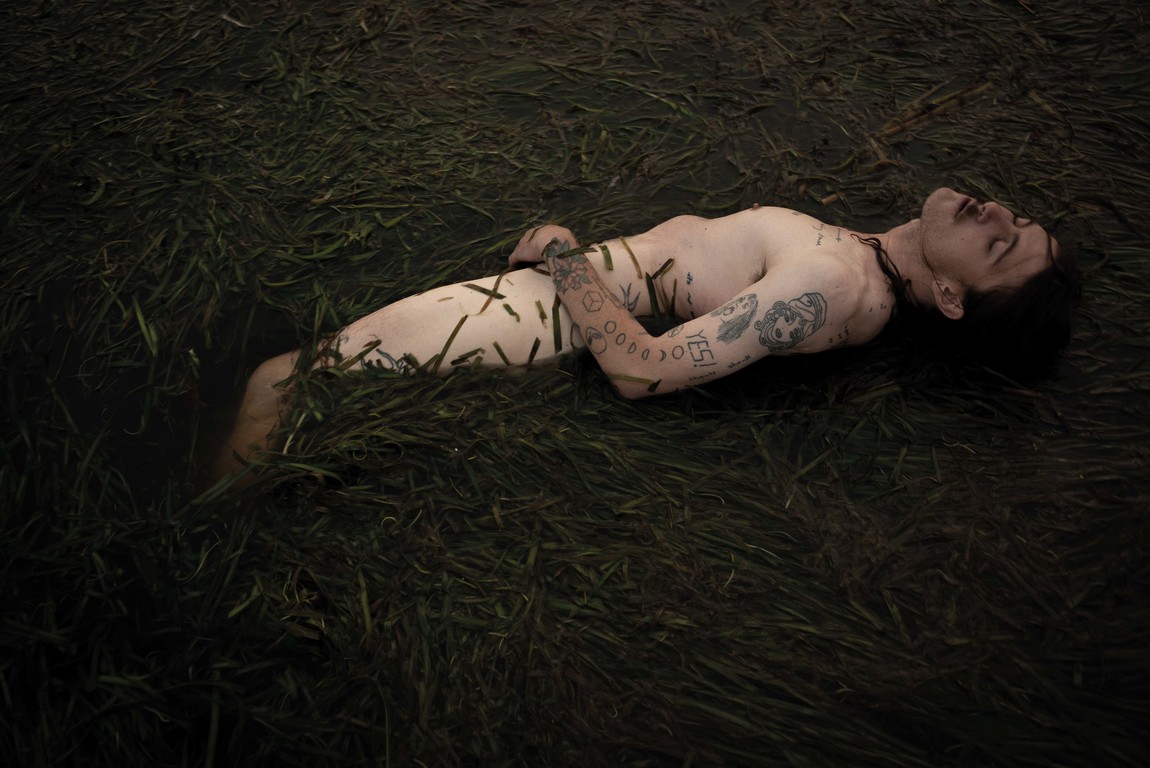
Tia Ranginui The light in you/Te ao Marama 2022. Digital print on Hahnemühle photo rag paper. Courtesy of the artist and Laree Payne Gallery, Hamilton
“My language is a body of words, swimming. My body is a language of water. My water is taking its own word for it. My own word for it, is reo.”
According to Rangimotuhia Kātene, a tohunga hailing from my own tūrangawaewae of the Whanganui river, the whakapapa of words begins with wanting. It began this way in me, too: a bittersweet yearning for the language of my tīpuna, a distant yet familiar taste in the mouth that came when learning to wrap my tongue around this reo for the first time. I don’t remember a time when I didn’t crave the geometric shapes of those ancient words, or when I didn’t recognise myself in the sounds of their line, cut and bite. I knew my language as a process, as a means by which to move, but the first baby steps born from that desire were by no means cut and dried, or easy to walk. The further I walked, however, the more I remembered. I remembered the place from where I came; the same damp, green banks as Kātene, the hips of the river so similar to my own. I remembered to elongate my vowels. I remembered to start with karakia. I remembered my tīpuna, who knew themselves so firmly, so un-halved, so concrete in their land and language. And the more I remembered, the more conscious I became. Here, a language revitalisation book. Here, kitchen windows scattered with yellow post-its. Here, a class full of my babies saying please whaea, and me saying, yes. Here, a new desire.
My language became the place I came home to, but it was not yet the place I laid my head. Even now, when I wake I brush my teeth in Māori, wash my face in English and then kiss my partner goodbye in a language of our own. I drive while singing in Māori, get petrol in English, walk into work with ‘Māori’ written on my forehead, greet the students in Māori, talk to my boss in English and talk to my hoamahi in Māori about things we don’t want other people to know we’re talking about. My language is comfortable in the kitchen and lonely in the staffroom. In hui I talk smart Pākehā, ‘this-is-my-phone-voice’ Pākehā. Kia ora whaea, a million times, in the hallway. My language is a social, native butterfly. It seems that the healthier my reo becomes, the sicker my English. I start asking what youse are doing, my th-ankyous, my f-ankyouz. What I really want is for my mouth to forget the brutality of c, d, z, b and f, and instead fill the sockets of my wisdom teeth with reo so pure it comes from the back of the throat and stays there. Kia ora whaea. My language is a desert island – I know how to return to the mainland but I refuse to let my butterfly fly me home to that easy place. My language is the bravest woman I’ll ever be.
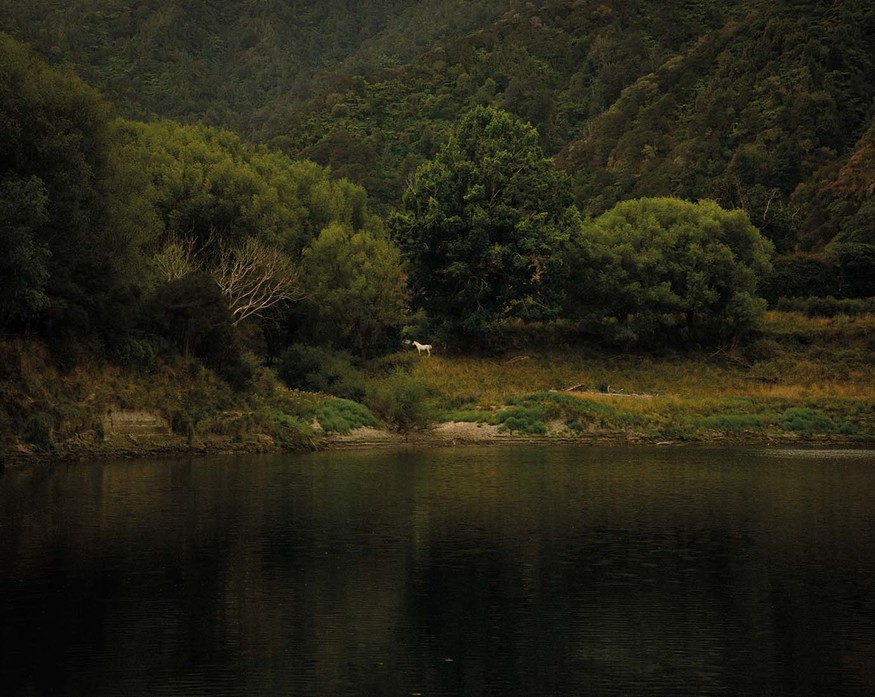
Tia Ranginui Mauri II 2019. Digital print on Hahnemühle photo rag paper. Courtesy of the artist and Laree Payne Gallery, Hamilton
If the whakapapa of language began with the desire, then nowadays my desire is for the balance to tip in favour of my mother tongue. Let me have it this way: meetings in Māori, Burger King in Māori, hard conversations in Māori, doctors in Māori, days in Māori. My DNA will hook onto the line of learning, fumbling, then speaking. Let this raranga be strong first, and beautiful second. Let the muka bind together my languages, and then add yours, and then add yours.
If language is a place then let it be right here, always. At the end of the whakapapa, at the end of the day, I am still a speaker for the coloniser; I am a speaker for the wounded, I am a speaker for the in-between, I am a speaker for my river, I am a speaker of words unedited in any language, I am a speaker moving through the world with my language tucked down my bra like a parlour trick, a favour. Friend or foe? I only give my language when I trust you not to tarnish it. At a party, I might tell you about the way in which words carry a thousand meanings. I might talk whenua – land and placenta – and we might change tack and share stories of finding afterbirths in ice-cream containers in the freezer. I might talk hapū – subtribe and pregnant – and we might chat up the whakapapa and really truly believe it when we say it takes a village to raise a child. I might talk iwi – people and bone – but my language knows when two things cannot exist with each other. And the bones of it is, my people are flocking to the auditoriums to learn our vernacular in their masses. It’s like a country unspinning its web and keeping the silk strung slick.
In my world, the whakapapa of language repeats itself every day. In class, I desire to give each rangatahi all the words they need to tell their own story, loudly. In the car, I remember my tipuna kuia who wasn’t scared to be Māori in the butcher’s shop. In bed, I am conscious of the way that information has been passed from body to body, from Papatūānuku to Hinetītama to me. In the morning, I release my words with their wings. Two languages, one mouth. I use my big-girl words to introduce myself. For me, it ends with the words it began with. My tīpuna have the last say.
E rere kau mai te awa nui nei, mai i te kāhui maunga ki Tangaroa, ko au te awa, ko te awa ko au. The river flows from the mountains to the sea, I am the river, and the river is me.
